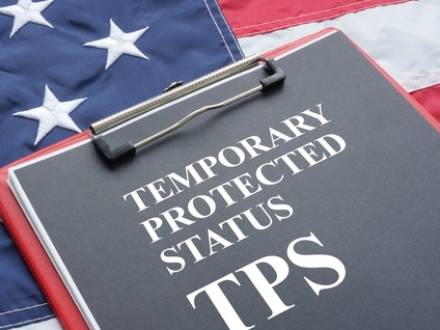Texas and the End of TPS for Venezuelans: What Happens Now
 Immigration laws and issues appear to be in a state of constant flux. TPS holders are feeling those changes – and not in a good way. In early October, the Supreme Court of the United States granted an emergency request by the current administration to end Temporary Protected Status (TPS) for more than 300,000 Venezuelans currently living and working in the United States. The administration has also significantly scaled back the TPS program for countries such as Honduras, Nicaragua, and Nepal.
Immigration laws and issues appear to be in a state of constant flux. TPS holders are feeling those changes – and not in a good way. In early October, the Supreme Court of the United States granted an emergency request by the current administration to end Temporary Protected Status (TPS) for more than 300,000 Venezuelans currently living and working in the United States. The administration has also significantly scaled back the TPS program for countries such as Honduras, Nicaragua, and Nepal.
Texas ranks second in the U.S. for the number of Venezuelan TPS holders, particularly in the Houston, Dallas, and San Antonio metro areas. Ending the TPS program for Venezuelans will likely have a significant impact on the Texas labor market, particularly in healthcare, construction, and logistics, where the majority of these individuals legally worked. If you are losing TPS status, speaking to an experienced Dallas, TX immigration attorney can help you determine what options may be available.
What is the TPS Program?
For years, Temporary Protected Status allowed Venezuelans and those from other countries to live and work in Texas and across the United States. TPS holders could work, obtain driver’s licenses, and remain safe from deportation amid the Venezuelan crisis. TPS was established under 8 U.S.C. Section 1254a for nationals of countries facing unsafe return conditions due to disaster, war, or political unrest.
Venezuela received the initial TPS designations in March 2021 due to political repression and a humanitarian crisis. In October 2023, this eligibility was expanded for newer arrivals. DHS terminated the 2023 redesignation on April 7, 2025, and the 2021 designation will end on November 7, 2025. Some TPS recipients may have received EADs, Forms I-797, Notices of Action, and Forms I-94 issued with October 2, 2026, expiration dates.
If these documents were received on or before February 5, 2025, these individuals will maintain TPS status until October 2, 2026. DHS justified ending TPS for Venezuelans by citing "improved country conditions" and ongoing U.S. immigration "policy adjustments."
What Does the End of TPS for Venezuelans Mean in Texas?
Once TPS protections are gone, the Venezuelans living and working in the U.S. legally will become subject to deportation. Employment Authorization Documents (EADs) will expire, requiring Texas employers to reverify work authorization under 8 C.F.R. Section 274a.2. Texas driver’s licenses issued under TPS will also expire, creating work and identification issues for almost 150,000 people. Families could face separation from one another, loss of housing, and income instability, triggering increased assistance requests through a non-profit organization.
Are There Any Legal Immigration Options After TPS Ends?
Some potential options after TPS ends include:
- Family-based immigration options for those who have a qualifying U.S. citizen or lawful permanent resident relative
- Employment-based visas for those who have a U.S. employer who will sponsor them
- Asylum for those who fear persecution in their home country based on race, religion, nationality, political affiliation, or membership in a particular social group
- U or T visas for victims of certain crimes or human trafficking victims who cooperate with law enforcement
- Deferred action that allows an individual to remain in the U.S. for a specific period with work authorization.
Contact a Plano, TX Family Immigration Lawyer
If you or a loved one currently holds TPS status as a Venezuelan national living in Texas, time is crucial. The announced termination dates mean work authorizations, driver’s licenses, and deportation protection could end within months. An experienced Dallas, TX immigration attorney from Law Office of Jae Lee can help you determine whether alternate relief is available to you before your TPS expiration leaves you vulnerable to deportation.
Attorney Lee can work with you remotely, when necessary, but you will always work directly with him, regardless of whether it is in-person or virtual. Attorney Lee’s parents went through the immigration process, so he has personal experience with the system, as well as his experience as an attorney. To schedule your free consultation, call 972-905-2170 today.






